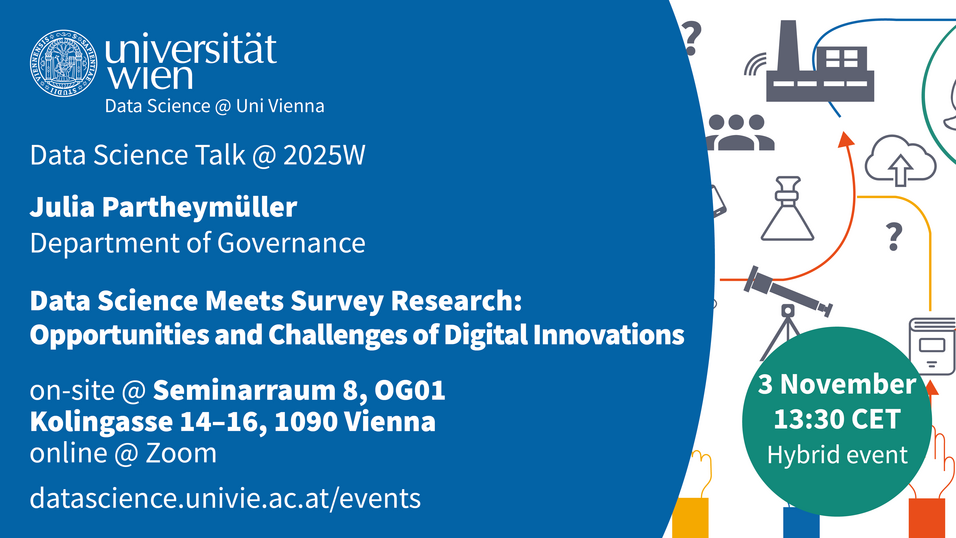Monday, 3 November 2025 @ 13:30–14:30 CET
On-site:
University of Vienna
Seminarraum 8 (OG01)
Kolingasse 14–16
1090 Vienna
Online:
https://univienna.zoom.us/j/67032386717?pwd=g8HOG2oRrWK6T5cvmRA7bv17QRzq72.1
Meeting ID: 670 3238 6717
Passcode: 440328
Data Science Meets Survey Research: Opportunities and Challenges of Digital Innovations
Abstract :
Survey research is being reshaped by methodological and computational innovations – but what do these changes mean for data quality? The rapid rise of non-probability online survey panels has raised concerns about representativeness, response quality, and survey professionalism. Yet are probability-based designs truly a guarantee of better data? At the same time, not only sampling is being transformed, but also question formats and the processing of survey responses. While the use of open-ended questions was previously constrained by high coding costs, the advent of large language models (LLMs) promises a more efficient analysis at scale. But can LLMs code responses with the accuracy and nuance of human coders? Drawing on evidence from the AUTNES and Digitize! surveys, this talk explores how digital innovations are reshaping survey research – asking whether current developments are a curse or a blessing, and highlighting the growing need for transparency, careful validation and continuous methodological assessment.
Bio :
Julia Partheymüller is a Senior Scientist in the Department of Government at the University of Vienna. She is a member of the Vienna Center for Electoral Research (VieCER), where she coordinates the surveys of the Austrian National Election Study (AUTNES), and she has recently joined the Data Science @ Uni Vienna research network. Previously, she worked at the University of Essex and the Mannheim Centre for European Social Research (MZES). She holds a PhD in Social Sciences from the University of Mannheim and studied Political Science in Berlin and Hamburg. Her research focuses on democracy and the dynamics of public opinion, with particular interest in survey methodology, quantitative methods, and data science.

